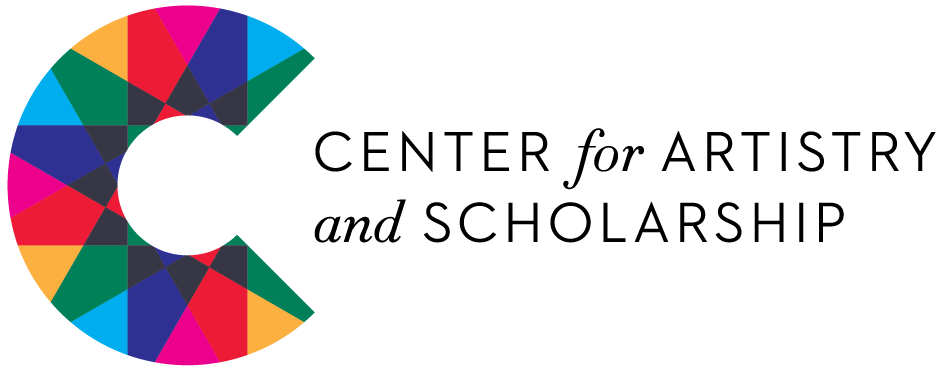The Importance of Creativity in Human Development
In April 2018, the Center for Artistry and Scholarship was privileged to bring musicians and educators Helena and Paulo Rodrigues to the Boston area all the way from Lisbon, Portugal. Helena and Paulo founded Companhia de Música Teatral, a music and theatre company in Portugal that specializes in creating artistic and educational projects that have music at the root of interdisciplinary practice. Helena and Paulo conducted workshops with Conservatory Lab Charter School PreK-2 staff and El Sistema Resident Artists, and with the full faculty at the Baldwin Early Learning Pilot Academy in Brighton, MA. The final event of their trip was presenting their research and work to an audience of artists and educators at the Harvard Graduate School of Education.
Helena began each teacher workshop with a series of experimental movements and actions: walking fluidly around the room, speaking and singing in gibberish, closing eyes and breathing deeply. After participants were warmed up and had had some laughs, Paulo took over. He introduced different objects and rules with the aim to create music collectively and without concern for perfection. At one point during the CLCS workshop, Paulo rolled out different balls of yarn, asking participants to create a sound for each color. A teacher would then hop on the different yarn colors in no particular order, while onlookers projected the sounds associated with each of the yarn colors, thereby creating a musical composition. However, the takeaway for me was not about learning alternative methods of creating music or understanding that music can be made from ordinary objects. Helena and Paulo are using these methods and ideas to help us stop overthinking and judging ourselves harshly. They are trying to create community through music, emphasizing the power of collaboration. The workshops were also a way to show that every individual is creative, and that sparking this kind of creativity -- unleashing it -- brings people together in a powerful way. As Paulo said to the CLCS teachers, “Music is great in allowing self expression. Music is about giving people the opportunity to express their thoughts. Music allows you to communicate with other people.”
At the Baldwin Early Learning Pilot Academy, Helena and Paulo’s work was perhaps more unfamiliar. Since Conservatory Lab is a school with a strong music program, the concept of the power of music resonates with teachers and Resident Artists each and every day. I was impressed by the willingness of the entire Baldwin staff (about 40 adults total) to throw themselves into the activities and games. They didn’t judge and didn’t question. They accepted Helena and Paulo’s work with open arms, and from an outside perspective, seemed to deeply enjoy themselves. This workshop concluded with a young woman singing a traditional song from her country, which Paulo happened to know, and sharing it with the rest of the group. This woman felt empowered by the opportunity to share her culture and lead the group. The rest of the faculty shared in this experience with her, embracing the song and singing with joy. In this case, music brought this group of teachers together in a different way. They had a shared experience, and felt energized by connecting to both their own and one another’s creative sides.
Both of these experiences were extremely different -- different energies, different dynamics, different methods and activities. Yet each workshop emphasized the importance of creativity in human development. The arts are a vehicle through which creativity is unleashed. Thus, infusing educational curriculum with artistic opportunities -- like music, dance, theatre, and visual art -- will allow young people to develop a strong sense of self, as well as an understanding of and appreciation for their peers. If this kind of experience could happen in two hours for each of these teacher groups, imagine the power that arts learning could have on those participating in it every day throughout elementary, middle, and high school.
Helena Rodrigues is Assistant Professor at the Faculdade de Ciências Sociais e Humanas, Universidade Nova de Lisboa and the founder of the Laboratory for Music and Communication in Infancy of the CESEM research unit at the same institution. Trained as psychologist and musician, more recently she started studying physical theatre and became interested in the therapeutic effects of music. Aiming to improve practices for infants, she has been developing an innovative approach to training that she defines as “opening the gates on communicative musicality”.
Paulo Rodrigues is a composer, performer, artistic director and educator. After completing a PhD in genetics and biochemistry at the University of East Anglia, he resumed earlier music studies and graduated in opera at the Royal Academy of Music, London, and composition with Rolf Gehlhaar. With Companhia de Música Teatral he has developed many artistic and educational projects, exploring the intersection of music and other artistic languages and technology, and addressing the idea of art as a tool for human development.
